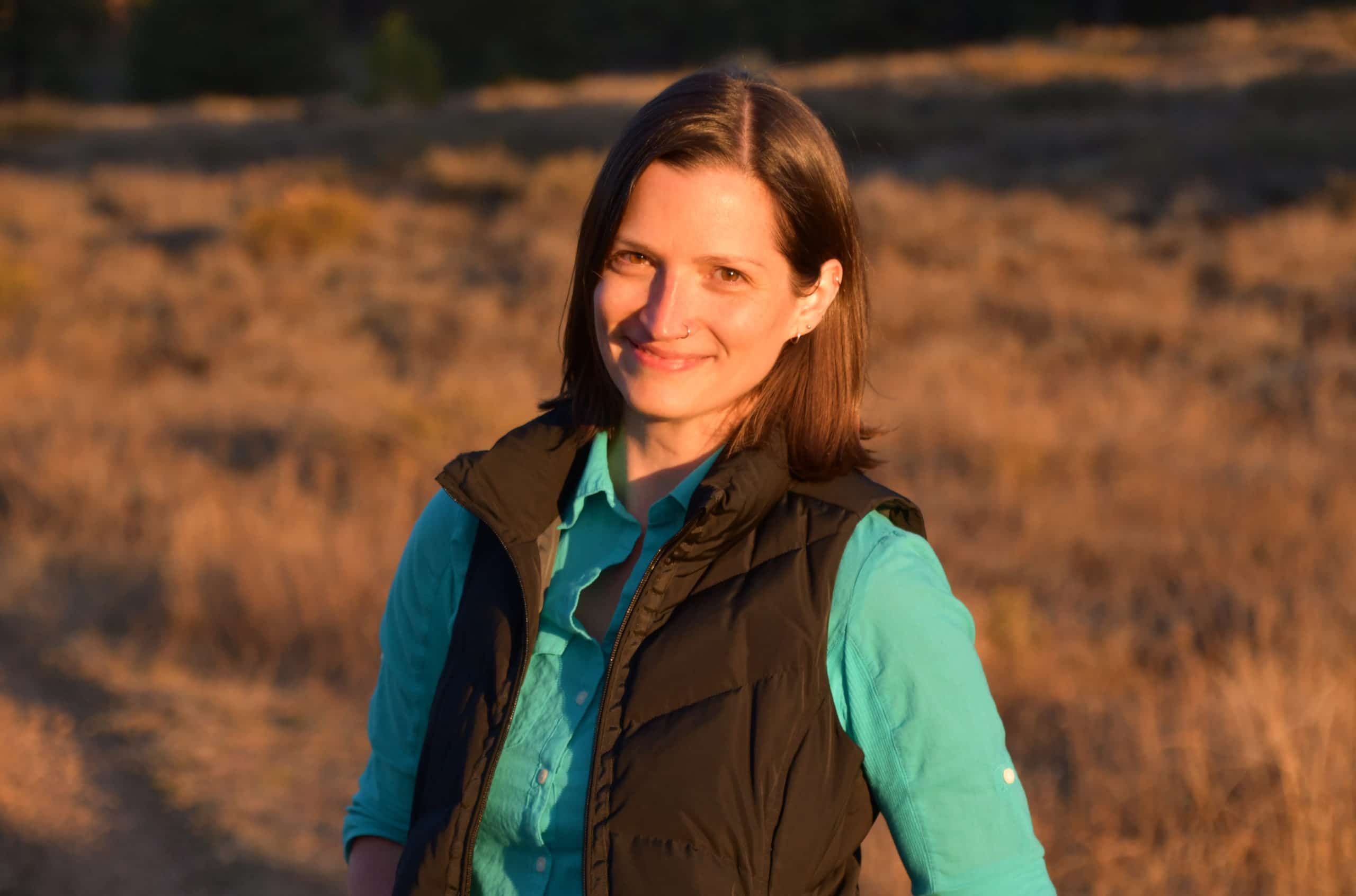
Tanja Hester and her husband Mark Bunge achieved an incredible financial goal: saving enough money to retire early. Hester and Bunge left their jobs in 2017 (at ages 38 and 41, respectively), and Hester has been chronicling their experience on her blog Our Next Life.
Hester’s new book, Work Optional: Retire Early the Non-Penny-Pinching Way, takes her blog one step further. This action-packed guide is designed to help everybody achieve a greater level of financial independence and build a life where work becomes optional — and maybe even follow Hester’s example and retire early.
I got the chance to talk to Hester about her book, why the financial independence movement is for everybody, the two budget line items that have the biggest impact on your savings, and why you should keep your life insurance policy even if you retire early.
The following interview has been condensed and edited for clarity.
What inspired you to write Work Optional? Why is this book important right now?
First of all, there are a lot of people who don’t know that early retirement or financial independence is an option. I wanted to get this information to more people.
Second of all, I wanted to counter a lot of the misconceptions out there. These run a number of gamuts; one is the misconception that you have to be naturally frugal and live this fairly miserable-sounding existence in order to retire early. That’s not how we did it. We didn’t give up a car and bike everywhere, we didn’t stop showering or stop cleaning our house, we lived a pretty normal-looking life while still saving and finding some tricks to help us.
I also wanted to make more people feel welcome [in the financial independence community], like people who have debt or people who have children. There are so many misconceptions about who can do this, like you have to be a high earner or you have to be dual-income-no-kids, but those aren’t the only folks who can do it.
Finally, I wanted to counter the misconception that it’s all or nothing. That you can either retire early or you might as well spend all your money. I write at length about semi-retirement and career intermissions — and honestly, if you could just save enough that you know you could quit a terrible job and be okay, if you could not have a job for several months and still be fine, that is huge power. I wanted more people to feel like they have that power; that they have the ability to walk away from something harmful and be in control of their own lives, even if they have to keep working.
I loved your suggestion to create a Money Mission Statement. How did that type of thinking help you as you worked toward early retirement?
Early on, I discovered that if I didn’t set some fairly strict rules, I would go over budget or spend money that I had hoped to save. I developed the Money Mission Statement because I wanted to help people think about rules in a more positive way. Rules and restrictions can feel very negative and limiting, so I wanted to give readers a way to feel strong and powerful and inspired.
It made so much sense to create a mission statement that brings everything together. What is your whole life vision that you’re aiming towards? It’s not just saving money for its own sake, which is, for most of us, not appealing. But creating an inspiring goal and then developing a set of guidelines to stay on track felt very powerful.
In terms of day-to-day saving, why do you suggest focusing on the big things, like housing and transportation, instead of on the little things?
It’s really just about getting the most bang for your buck. There are a million little ways that you can save money — I had my extreme couponing phase, and when I look back on that and see how much effort I put into saving $100 or $200 a month, it was a huge amount of time that I invested.
Housing and transportation give you the most impact, in terms of saving money, for the least effort. If you can keep those costs contained, they will do more for your savings rate than any other thing you do to save money. If you can find a rent-controlled apartment and stay there instead of moving up when your salary moves up, or if you can find a starter home and pay it off instead of moving like everyone tells you you’re supposed to, or drive a car forever, or take public transportation if you live in a city where that’s possible, those things will save you so much money much more quickly than pretty much anything else you can do.
Focusing on just two things and figuring out how to up your savings is so much better than trying to do a million little things to save a couple dollars here and there.
Why life insurance
Life insurance is a financial safety net for your partner, your kids, your life...
Read moreHow does life insurance fit into a financial independence plan? You and your husband took out a term life insurance policy that’ll cover you until you’re in your 50s, right?
Yes, and we’re not canceling those policies now that we’re financially independent. Most life insurance is technically designed to replace your income. It can also be used to cover expenses when someone passes away, which is why some parents take out life insurance policies on their children.
If you have an inexpensive term life insurance policy, there’s no reason to cancel it. Even if you retire early and stop working, your labor still has value. If Mark wasn’t around to fix the roof or change the oil in the car, those are things I’d have to pay for — or learn how to do them myself, though I’d probably prefer not to! There’s value in having extra money to pay for the things that he had been doing, and if I weren’t around, there would be tasks that Mark might prefer not to do.
For folks who have children, if one of the parents is providing childcare, that has huge value. Life insurance can cover the cost of that value.
The other reason we’re holding on to our policy, besides the fact that it’s fairly inexpensive, is that — this’ll sound a little morbid, but if something happened to Mark, I would be pretty miserable. I wouldn’t want to have to think about what stuff costs. I’d want to have a little extra cushion for comfort. I might not have the time or mental energy to focus on saving money.
You shouldn’t assume that, just because you’re financially independent and don’t need to work anymore, there’s no place for life insurance.
How do you stick to your financial independence plan over five or ten years?
I think that the biggest thing is to remind yourself that, by taking this step, you’re now making the work portion of your life a much shorter chapter than it is for most people. It helps you be grateful for it and appreciate it in a different way.
When we’re staring down a 40-year career, we don’t often feel grateful for that. We don’t appreciate things as much, or we let the little things bother us. Saying “I only have to do this for X number of years,” even if that’s a decade, helps you remember that you’re working towards a special goal, and you should appreciate that.
There were other strategies Mark and I used that helped a lot, like instituting a Work Complaint Ban. It was amazing how transformative that was. It made a huge difference in our mindset. Once we knew we weren’t allowed to complain, our minds stopped going to that complainy place.
It also helps to have a support system, whether that’s in real life or online or through financial independence meetups. It’s especially helpful if everyone around you is a freewheeling spender or just lives a very different lifestyle than you’re taking on. Knowing other people who will remind you that you’re not weird is very helpful. It’ll show you that this is a completely valid way to live.
Lastly, make sure that you’re still spending some money to enjoy life now. None of us are guaranteed tomorrow, so make sure you still love your life at this moment. As I write in the book: Of the things you dream about doing, which of those could you start doing now?
Nicole Dieker is a full-time freelance writer. Her work regularly appears on Bankrate, Lifehacker, The Write Life, and numerous other sites. She is the author of Frugal and the Beast: And Other Financial Fairy Tales. This article is sponsored by Haven Life Insurance Agency. Opinions are her own.
Haven Life Insurance Agency offers this as educational only, and the information provided is not written or intended as specific legal advice. Haven Life Insurance Agency does not provide legal advice. Individuals are encouraged to seek advice from their own legal counsel.
The post How to live a work-optional life with Tanja Hester appeared first on Blog | Haven Life | Life insurance & Personal Finance Tips.
from Blog | Haven Life | Life insurance & Personal Finance Tips https://ift.tt/2TSMjTm

ConversionConversion EmoticonEmoticon